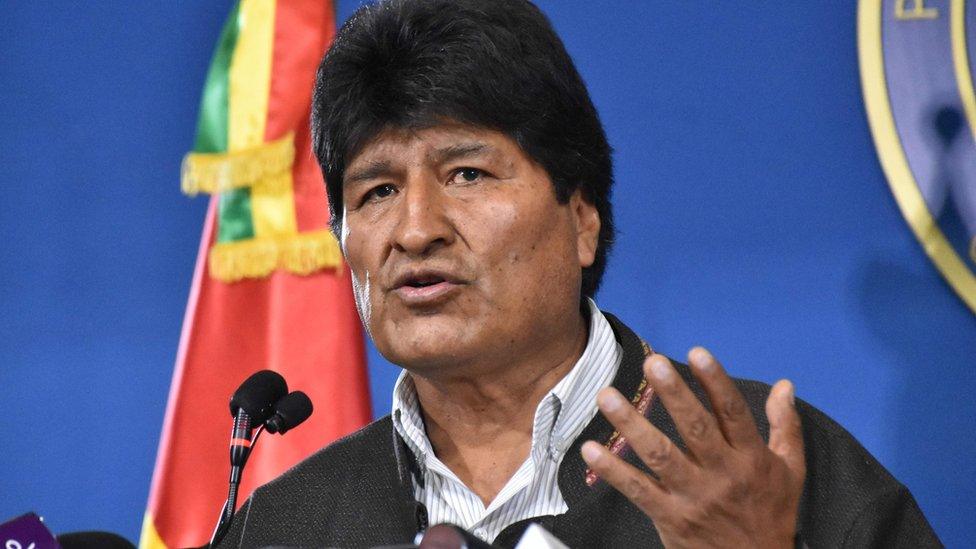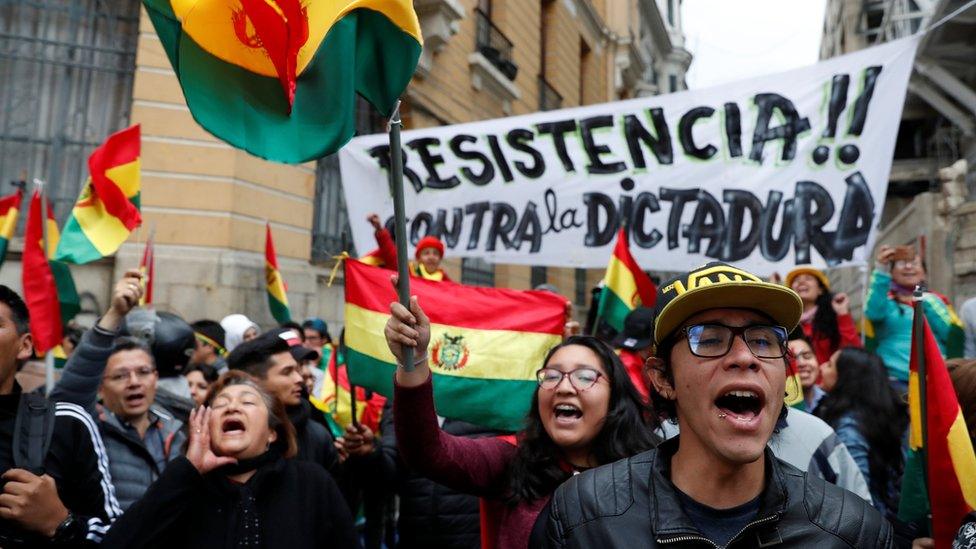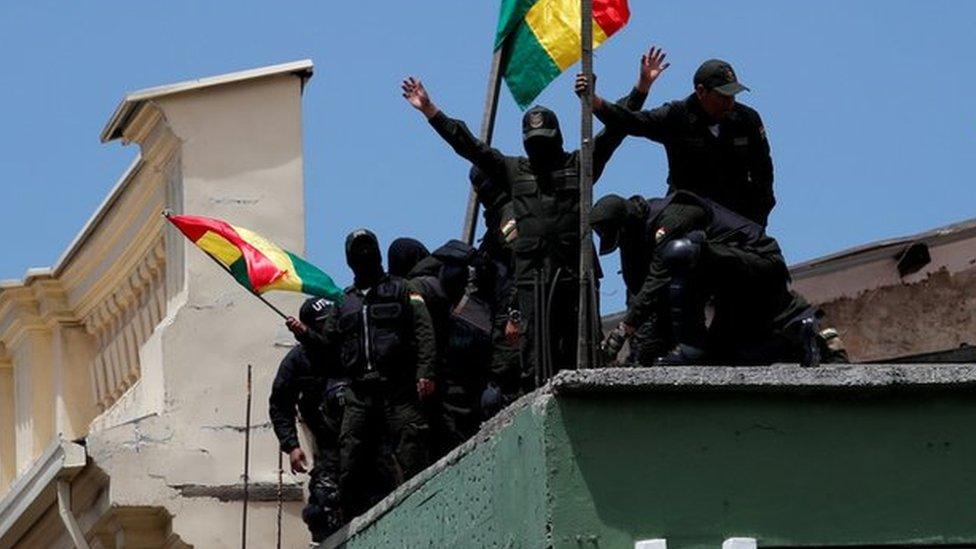Bolivia's Morales to call fresh election after OAS audit
- Published

President Evo Morales denies accusations of wrongdoing after weeks of protests
Bolivia's President Evo Morales has said he will call a new election after international monitors questioned the validity of his victory last month.
The Organization of American States (OAS), which monitored the elections, found "clear manipulation" and called for the result to be annulled.
Reports of election fraud sparked off weeks of anti-government protests.
Opposition leader Carlos Mesa said Mr Morales and his vice-president should not run in the new poll.
Nor should they preside over the electoral process, he said.
"If you have an iota of patriotism, you should step aside," Mr Mesa said at a news conference.
What did Morales say?
The president, who was first elected in 2006, has denied any wrongdoing and ignored calls to resign.
"The candidacies must be secondary; what comes first is to pacify Bolivia," he told a local radio station.
In his announcement on Sunday, he also said the country's Supreme Electoral Tribunal (TES) would be overhauled before the poll, with parliament choosing its members.
Bolivia's attorney general has now ordered an investigation into the conduct of TES members.
Mr Morales, who is Bolivia's first indigenous president, told reporters that he had made the decision "to reduce all tension".
What did the OAS say?
In its preliminary report on Sunday, the OAS said it had found "clear manipulations" of Bolivia's voting system and it could not verify the result of the 20 October race.

Protesters marched in La Paz on Saturday with a sign reading: "Resistance against the dictatorship"
During the audit, it said it found physical records with alterations and forged signatures, and evidence of wide-scale data manipulation.
The international body concluded it was unlikely that Mr Morales had won by the 10% margin required for a victory. It recommended that a new electoral commission be set up before a fresh election could take place.


Evo Morales's decision to call fresh elections is in some ways a climb-down. His position was looking increasingly untenable after weeks of unrest that worsened in the past 48 hours. So a new vote for many is a positive start.
But for Mr Morales's critics - and the number is growing - the promise of fresh elections is not enough. He was accused of rigging the vote the first time, few believe clean elections are possible a second time around.
Plus, there's lots of detail that's needed to calm the nerves of his sceptics. At the news conference, he said there would be new elections but didn't give any detail as to when. And when they're held, will he run? Already his opponents have called for him to step aside, despite his concessions. Many doubt his intentions to move the country forward in a democratic manner.

Why has there been opposition to the election result?
Bolivia has been rattled by protests, strikes and road blocks since the night of the election.
At least three people have died during clashes. The mayor of a small town was also attacked by protesters earlier this week, who dragged her through the streets barefoot, covered her in red paint and forcibly cut her hair.
Tensions first flared after the results count was inexplicably paused for 24 hours.
The final result gave Mr Morales slightly more than the 10% lead he needed to win outright, giving him a fourth consecutive term.
Watch how police took part in Bolivia's anti-government protests on Saturday
In an escalation of protests on Saturday, opposition supporters overran two state-run media outlets in La Paz and forced them off air.
On the same day a number of uniformed police officers also joined crowds of demonstrators in several major cities.
Mr Morales condemned the seizure of the TV and radio stations, but Bolivia's defence minister said there were no plans to deploy the military to quell the police "mutiny".
Bolivia's armed forces have also called for the crisis to be solved by democratic means.
Elsewhere in the region, the leaders of Venezuela, Cuba and Mexico - and Argentina's president-elect Alberto Fernandez - voiced their support for Mr Morales.
- Published10 November 2019
